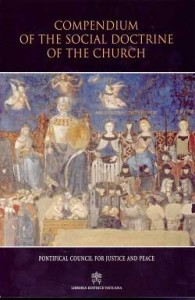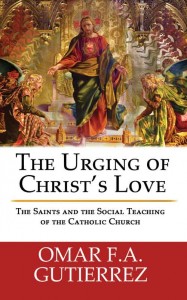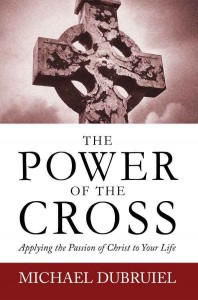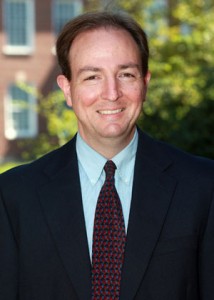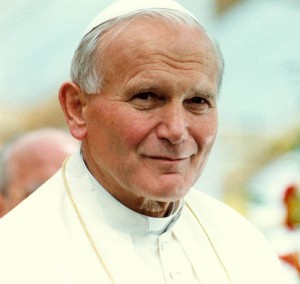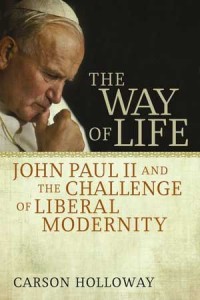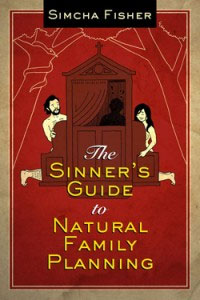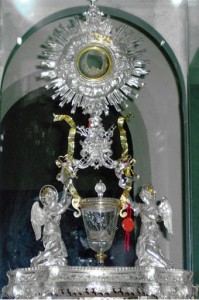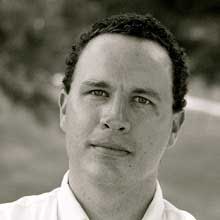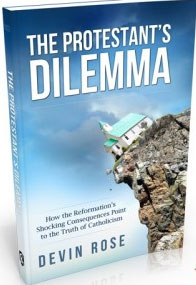God, deliver me from sullen saints. – Saint Teresa of Avila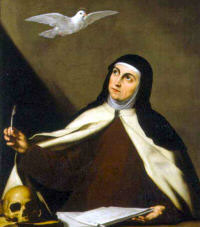
Oh my Lord! How true it is that whoever works for you is paid in troubles! And what a precious price to those who love you if we understand its value. – Saint Teresa of Avila
There is no such thing as bad weather. All weather is good because it is God’s. – Saint Teresa of Avila
There is more value in a little study of humility and in a single act of it than in all the knowledge in the world. – Saint Teresa of Avila
We need no wings to go in search of Him, but have only to look upon Him present within us. – Saint Teresa of Avila
Let nothing trouble you, let nothing make you afraid. All things pass away. God never changes. Patience obtains everything. God alone is enough. – Saint Teresa of Avila
Dream that the more you struggle, the more you prove the love that you bear your God, and the more you will rejoice one day with your Beloved, in a happiness and rapture that can never end. – Saint Teresa of Avila
Hope, O my soul, hope. You know neither the day nor the hour. Watch carefully, for everything passes quickly, even though your impatience makes doubtful what is certain, and turns a very short time into a long one. – Saint Teresa of Avila
You ought to make every effort to free yourselves even from venial sin, and to do what is most perfect. – Saint Teresa of Avila
If Christ Jesus dwells in a man as his friend and noble leader, that man can endure all things, for Christ helps and strengthens us and never abandons us. He is a true friend. And I clearly see that is we expect to please him and receive an abundance of his graces, God desires that these graces must come to us from the hands of Christ, through his most sacred humanity, in which God takes delight. All blessings come to us through our Lord. He will teach us, for in beholding his life we find that he is the best example. What more do we desire from such a good friend at our side? Unlike our friends in the world, he will never abandon us when we are troubled or distressed. Blessed is the one who truly loves him and always keeps him near. Whenever we think of Christ we should recall the love that led him to bestow on us so many graces and favors, and also the great love God showed in giving us in Christ a pledge of his love; for love calls for love in return. Let us strive to keep this always before our eyes and to rouse ourselves to love him. For is at some time the Lord should grant us the grace of impressing his love on our hearts, all will become easy for us and we shall accomplish great things quickly and without effort. – Saint Teresa of Avila
“I do not fear Satan half so much as I fear those who fear him.”– Saint Teresa of Avila
“To have courage for whatever comes in life – everything lies in that.”– Saint Teresa of Avila
“To reach something good it is very useful to have gone astray, and thus acquire experience.”– Saint Teresa of Avila
“We can only learn to know ourselves and do what we can – namely, surrender our will and fulfill God’s will in us.”– Saint Teresa of Avila
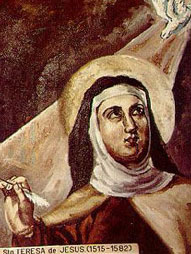 “We shall never learn to know ourselves except by endeavoring to know God; for, beholding His greatness, we realize our own littleness; His purity shows us our foulness; and by meditating upon His humility we find how very far we are from being humble.”– Saint Teresa of Avila
“We shall never learn to know ourselves except by endeavoring to know God; for, beholding His greatness, we realize our own littleness; His purity shows us our foulness; and by meditating upon His humility we find how very far we are from being humble.”– Saint Teresa of Avila
“There are more tears shed over answered prayers than over unanswered prayers.”– Saint Teresa of Avila
“It is here, my daughters, that love is to be found – not hidden away in corners but in the midst of occasions of sin. And believe me, although we may more often fail and commit small lapses, our gain will be incomparably the greater.”– Saint Teresa of Avila
“The tree that is beside the running water is fresher and gives more fruit.”– Saint Teresa of Avila
“O my God, what must a soul be like when it is in this state! It longs to be all one tongue with which to praise the Lord. It utters a thousand pious follies, in a continuous endeavor to please Him who thus possesses it.”– Saint Teresa of Avila
“Our body has this defect that, the more it is provided care and comforts, the more needs and desires it finds. “– Saint Teresa of Avila
“The feeling remains that God is on the journey, too.”– Saint Teresa of Avila
 – We continue the study of the “Compendium of the Social Doctrine of the Church” Chapter 12 “Social Doctrine and Ecclesial Action”
– We continue the study of the “Compendium of the Social Doctrine of the Church” Chapter 12 “Social Doctrine and Ecclesial Action”